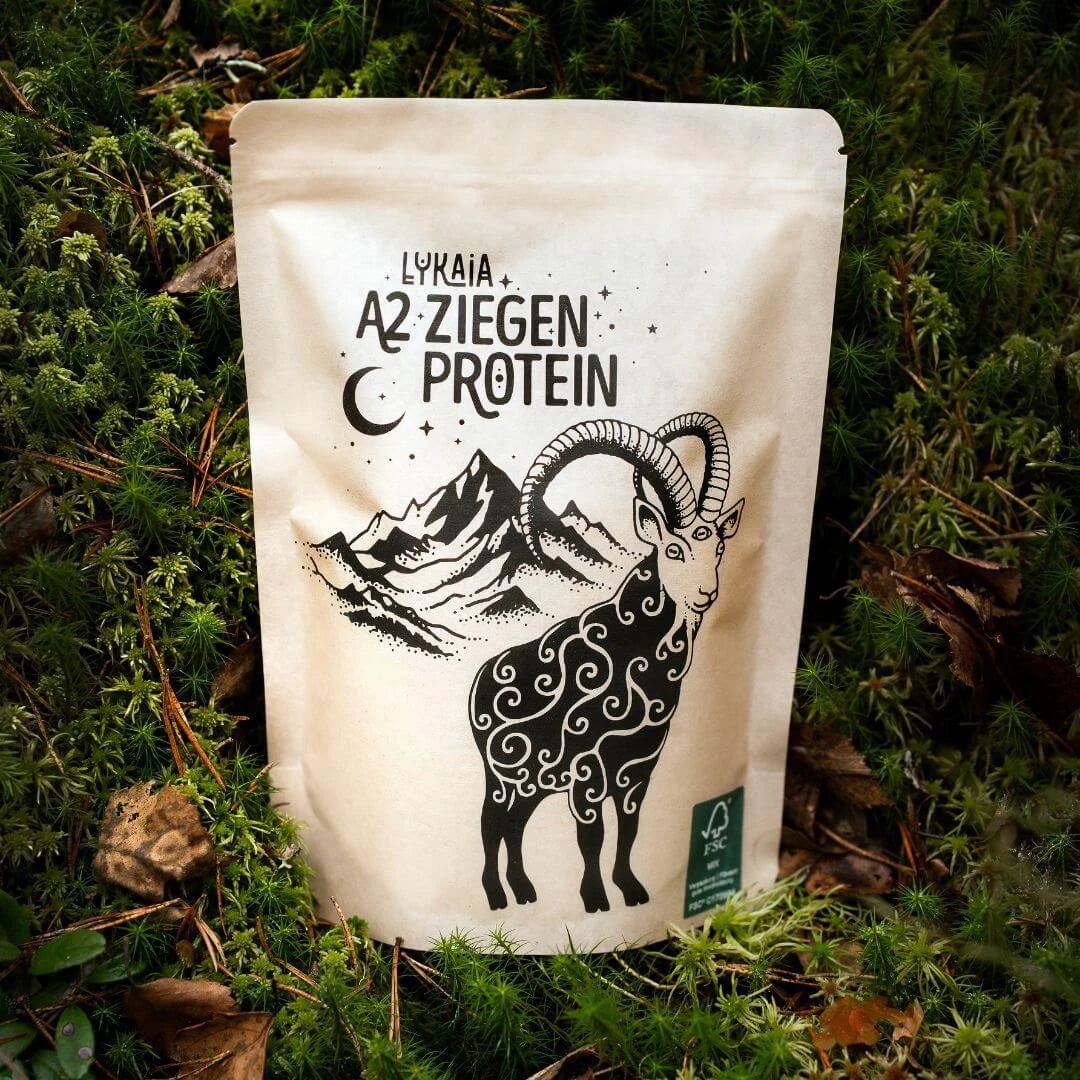What you should know about milk intolerance

What milk intolerances are there?
When you hear about milk intolerance, you probably first think of lactose intolerance. Maybe you are affected yourself. If not, you most likely have someone affected in your circle of friends. This is more of the norm in Germany.
But: did you know that there are many other milk intolerances? You may have symptoms after consuming dairy that you don't blame on the cow (although it's her fault, stupid cow).
Here we provide you with an overview of possible milk intolerances and their symptoms.

Four known milk intolerances and their symptoms
1. Lactose intolerance
Lactose intolerance is the most well-known form of milk intolerance. This is no wonder, since in Germany 15-20% suffer from this condition. If you have lactose intolerance, your body cannot break down milk sugar (lactose) or cannot break it down efficiently enough. This is because the enzyme lactase responsible for this is not produced in small quantities by the body.
The solution is usually a reduction in milk-based products. Frustrating for many, especially athletes .

Symptoms of milk intolerance lactose intolerance:
- Abdominal pain and stomach cramps
- Diarrhea
- nausea
- Vomit
- Flatulence
- Heartburn and belching
- Gas formation (bloated stomach)
2. Cow's milk protein allergy
Cow's milk protein allergy (KPMA) is a simple allergic reaction to proteins contained in cow's milk. If lactose intolerance was the first slap in the face, cow's milk protein allergy is the common knockout blow for bodybuilders or fitness savvy people. “Proteins contained in cow’s milk” means: whey (whey protein) or casein. The two highest quality sources of protein powders with versatile uses.
The “good thing” is that this allergy is more common in toddlers and children and adolescents have the chance to outgrow this allergy!
For adults it is important to choose good substitute products . In most cases, a goat protein is a very good solution because it is of similar quality and is better accepted by the body .

Symptoms of milk intolerance Cow's milk protein allergy:
- skin rash
- itching
- swelling
- Cough, shortness of breath
- Vomit
- stomach pain
- Diarrhea
3. Milk protein intolerance
Milk protein intolerance basically describes cow's milk protein allergy. The difference is that milk protein intolerance is an actual milk protein intolerance and not an allergy .
Symptoms of milk intolerance Cow's milk protein allergy:
Since this is simply an intolerance, the same symptoms occur as with a cow's milk protein allergy - but in a milder form. This means that, depending on individual physical requirements and the amount of milk proteins (casein and whey) consumed daily, milk proteins can be carefully consumed in small amounts - with little or no discomfort.
4. Casein sensitivity

In addition to the already mentioned cow's milk protein allergy and milk protein intolerance, there is another form of intolerance that is dedicated to casein. Casein sensitivity. Some people are very sensitive to casein, which almost precludes consumption of this high-quality protein. This is because when casein is consumed , biochemical reactions occur in the gastrointestinal tract .
The vast majority of people can easily cope with these reactions and even benefit from them. Because casein has many benefits for us due to the difficult digestion process. We are supplied with protein in the long term. You can also read more about the topic of casein in this article .
Affected people can usually continue to consume whey protein (whey).
Symptoms of milk intolerance, casein sensitivity
- skin rash
- Digestive problems
- Respiratory problems, such as: shortness of breath, sneezing, coughing and stuffy noses
- But also: headaches, fatigue and muscle and joint pain
You can read more about A2 casein and why it is better for you here .
Milk intolerance in old age and in adults:
For many years you didn't mind dairy products. Suddenly, various symptoms appear that you would not otherwise have had after consuming dairy products. Age-related milk intolerance has developed. How come?
Changes in the digestive system can occur, especially in old age. These increase the likelihood of developing milk intolerance. People in their mid-50s and above in particular complain of sudden lactose intolerance . The reason is an age-related reduced production of the enzyme lactase . As a result, older people are probably more likely to develop sudden lactose intolerance than younger people.

For other milk intolerances, there is no direct link between aging and increased risk.
If you or someone in your family notices that they suddenly develop reactions to dairy products, it is probably the lactose. Milk-based protein products that are low in lactose or contain the enzyme lactase could be a simple solution here.
Since dairy products are rich in proteins and these are often deficient in people over 60, it is essential to find high-quality substitutes for dairy products.
In this article you will learn more about sarcopenia and the connection to protein.
Milk intolerance: what to do if symptoms occur?
Make sure it's actually dairy.
Remove dairy products from your food. Are you still experiencing symptoms? Okay: probably not milk intolerance. It's something else (hey, sarcastic applause). If symptoms no longer appear after removing cheese, milk, protein powder, or other dairy-based products, it is very likely that you have a dairy intolerance .
In this case, you can look for replacement products. For example, you can swap your (whey/whey) milk protein or casein powder with high-quality goat protein . This naturally has less lactose and is based on A2 milk. This is more digestible for humans! You can read more about this in this article .

Either way, you should consult a nutritionist and/or doctor . Symptoms of milk intolerance are often similar to those of other diseases. As a result, it is not always clear when you try it yourself what the exact problem is. In most cases, specialists have the necessary knowledge to develop individual nutritional plans and recommendations tailored to your needs.
What are your experiences? Do you have a milk intolerance or have you seen your friends or family members develop one? How do you deal with it?
We look forward to hearing about your experiences!
Your Lykaia team
0 comments







